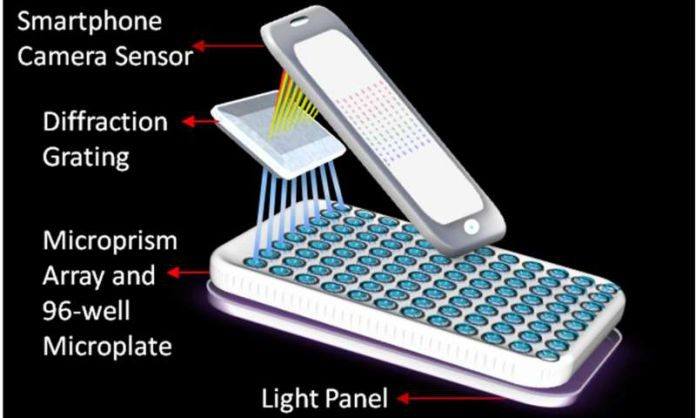Various scientists have previously developed various devices to detect cancer cells. Today, smartphones are a daily need for human beings. We can’t imagine our lives without them. To take advantage of this, Scientists are focusing on developing contrasting technologies that depend on smartphones. For example, wearable technologies and methods to detect cancer through a smartphone-smartphone spectrometer.
Similarly, scientists from Washington State University have developed a compact smartphone laboratory. This smartphone laboratory can detect various samples simultaneously to catch a cancer biomarker and produce lab-quality results. Physicists want patients to get instant treatment, so they are trying to interpret laboratory detection technologies for the field and clinic.
Scientists have created an eight-channel smartphone spectrometer. This spectrometer detects human interleukin-6 (IL-6), a known biomarker for lung, prostate, liver, breast, and epithelial cancers. It examines the amount and type of chemicals in a sample by measuring the light spectrum. Generally, smartphone spectrometers only monitor or measure a single sample at one time, making them ineffective in real-world applications.
Compared to previous conventional spectrometers, this novel smartphone spectrometer can measure more than eight different samples simultaneously. It only uses a common test called ELISA, or colorimetric test enzyme-linked immunosorbent assay that identifies antibodies and color change as disease markers. The device shows 99 percent accuracy with standard lab-controlled samples.
Now, scientists are applying their portable spectrometers in real-world situations.
Lei Li said, “With our eight-channel spectrometer, we can put eight different samples to do the same test or one sample in eight different wells to do eight different tests. This increases our device’s efficiency.” (Li is the assistant professor in the School of Mechanical and Materials Engineering.)
“The spectrometer would be especially useful in clinics and hospitals that have a large number of samples without on-site labs, or for doctors who practice abroad or in remote areas. They can’t carry a whole lab with them. They need a portable and efficient device,” he added.
Li’s design works with an iPhone 5. He is creating an adjustable design that will be compatible with any smartphone.
